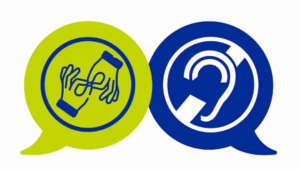Preparing for a Joint Commission on-site survey is a daunting process. Whether you’re applying for accreditation or you’re in the window for your next review, you must be prepared. As a language-services company, Global Arena is here to help make sure you’re compliant. But where to start? And as an interpreter, what do you need to be sure you’re ready to work in a Joint Commission accredited facility? Let’s start with the basics:

Language Services Standards
The Joint Commission has special standards for the provision of language services in a healthcare setting. When evaluating hospitals for accreditation (and review), the surveyors considering the following:
-
Does the provider have a language services policy?
- All healthcare providers are required to have a policy in place for the provision of language services. This must be an available service at all times: 24/7. They do, however, have a choice in how they provide it. They can choose to have on-site interpreters, over-the-phone interpreting (OPI), video remote interpreting (VRI), or a combination. Regardless of mode, interpreters must be treated with respect as they’re a vital part of patient care and communication.
-
Are medical interpreters well-briefed on the provider’s procedures and policies?
- Medical interpreters must follow all of the hospital’s standards, policies, and procedures while on site. They should be especially knowledgeable about upholding HIPAA and protecting PHI. Institutions should highly vet interpreters and hire them based on their qualifications and certifications.
-
Are vital documents translated into the most commonly encountered languages?
- Facilities must translate all vital documents into the language a patient can best understand by a qualified translator. This ensures patient safety and comprehension, regardless of spoken language barrier.
Working as a Joint Commission Standards-Compliant Interpreter
Working as a medical interpreter requires training, preparation, and medical knowledge. You must follow Joint Commission standards, in order to, and agency or healthcare provider hired you as a medical interpreter. To demonstrate that you fit this description, keep in mind the following:
-
Compile your documents:
- When you first start work as a medical interpreter, you must compile and submit all relevant documents pertaining to your qualifications. This is regardless of whether you’re working as an independent contractor or directly with a health system. Your documents include not only diplomas, certificates, and degrees, but vaccination records and background checks as well. Submit these documents to the organization for whom you work.
-
Update your documents:
- Regularly update your documents and submit new ones as necessary. This not only demonstrates willingness to comply with standards, but also shows your initiative and serious attitude as an interpreter.
-
Follow provider procedures:
- If a healthcare provider eployed you directly, they’ll likely give you an orientation. It’s still prudent to ask questions related to the specific facility’s standards and policies. If you’re working as an independent contractor, ask your agency’s project manager or site contact for more information.
-
Abide by the Interpreting Code of Ethics:
- Apply the Interpreting Code of Ethics (as provided by the State Justice Institute) to every session for which you interpret. Hold yourself to the highest standard and report impediments to progress or ethical violations immediately.
-
Obtain HIPAA training:
- Handling Protected Health Information (PHI) is a vital part of medical interpreting. You should be able to demonstrate that you’ve attended a HIPAA training from a reputable source. This training must cover information about following HIPAA standards on a daily basis: protecting patient data.
How can Global Arena help?
As a healthcare organization, you must be sure that you’re covering language service needs in a way that’s Joint Commission-compliant. Global Arena takes care of all the legwork, leaving you to simply request an interpreter. We compile all the relevant documents, background checks, and qualifications and can send them to you electronically. You’ll have everything you need within seconds. We train our interpreters in-house and ensure quality through a rigorous hiring process. We offer other services, too: we’ll take care of your multilingual translations with our extensive team of certified and vetted translators, editors and proofreaders. We’re committed to not only providing exceptional service, but continuous improvement through courses and educational development.
Working with the Joint Commission: an eLearning Course by Global Arena
Working with the Joint Commission isn’t only relevant for an on-site contact. Surveys affect every department, whether your staff has direct contact with the surveyors or not. To help everyone understand the importance of standards compliance is to be prepared for a smooth visit. As an interpreter, it’s vital to know what’s expected of you while working at a Joint Commission Accredited facility. This improves hireability and prepares you for any session.
Global Arena’s course, Working with the Joint Commission, builds that foundation. In only half an hour, participants will better understand the Joint Commission, survey procedures, and best practices. So, the course prepares your team to experience a smooth, successful on-site survey. It’s fully online, self-paced, and accessible from any device, any time. The course culminates in a final review and certificate upon successful completion. The course is updated twice annually, to include information about new standards and procedures. Participants have lifetime access to course updates and their certificate. Follow this link to learn more or register today!




